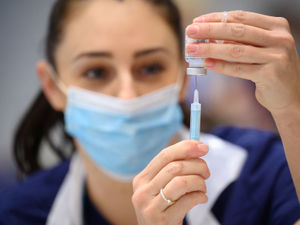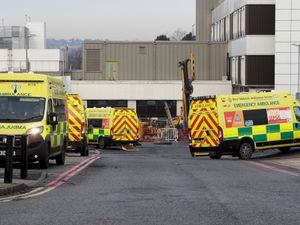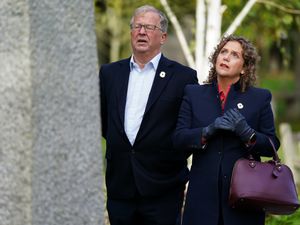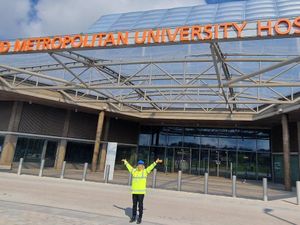Omicron likely to be less severe, studies suggest, as Covid cases top 100,000
New research suggests the variant is less likely to result in hospital admission.
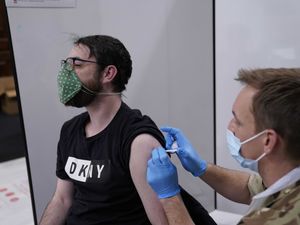
People who catch the Omicron variant of Covid may be less likely to end up in hospital, studies have suggested, amid rising case rates and new restrictions across the UK nations.
Two new studies have suggested catching Omicron is less likely to result in severe symptoms and hospital admission than earlier Covid strains like Delta.
But Professor Neil Ferguson, from the Imperial College London team behind one of the studies, warned Omicron’s severity may be offset by the “reduced efficacy” of vaccines to stop it being transmitted.
The new data was released after Boris Johnson faced calls to outline his post-Christmas Covid strategy for England, as Northern Ireland, Wales and Scotland have all announced new restrictions to tackle the Omicron variant.
Recorded case rates of Covid across the UK rose above 100,000 on Wednesday for the first time since the start of the pandemic.
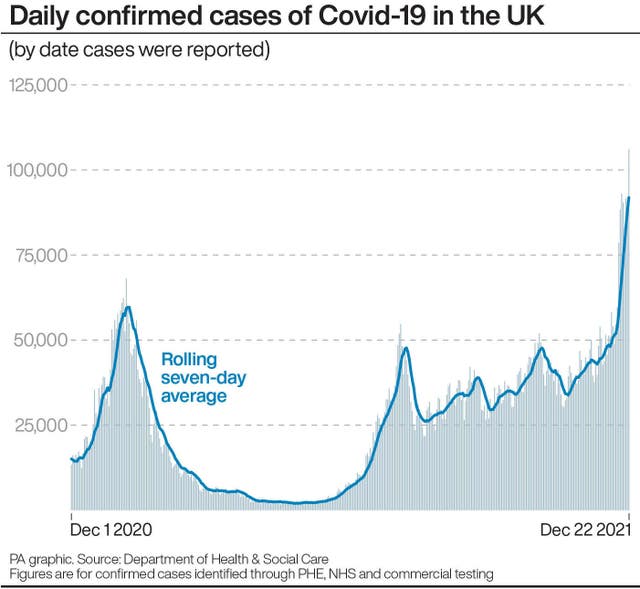
New research from Imperial College London has indicated that people with PCR-confirmed Omicron are 15-20% less likely to need admission to hospital, and 40-45% less likely to require a stay of one night or more.
Scientists in a separate Scotland-wide study called Early Pandemic Evaluation and Enhanced Surveillance of Covid-19 have said Omicron is associated with a two-thirds reduction in the risk of hospital admission compared with Delta.
However, researchers have added that although Omicron appears less severe, it is more transmissible partly because the current crop of coronavirus vaccines are less effective against it.

Prof Ferguson said: “Our analysis shows evidence of a moderate reduction in the risk of hospitalisation associated with the Omicron variant compared with the Delta variant.
“However, this appears to be offset by the reduced efficacy of vaccines against infection with the Omicron variant.
“Given the high transmissibility of the Omicron virus, there remains the potential for health services to face increasing demand if Omicron cases continue to grow at the rate that has been seen in recent weeks.”
Both studies are yet to be peer-reviewed, with Dr Jim McMenamin, the national Covid-19 incident director for Public Health Scotland, labelling the findings of the Scotland study a “qualified good news story”.
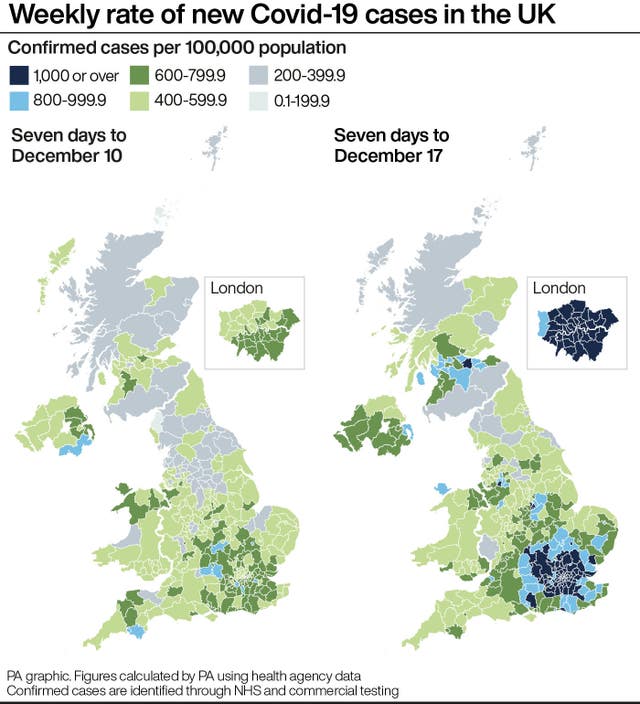
The latest Government figures show a further 106,122 lab-confirmed Covid-19 cases have been recorded in the UK as of 9am on Wednesday.
The Government said a further 140 people had died within 28 days of testing positive for Covid-19.
Figures from NHS England show that 1,904 people were in hospital in London with Covid-19 as of December 21, the highest number since March 2 and up 41% from a week earlier.
Across England, 6,902 patients were in hospital with Covid-19 on December 21 – the highest number since November 10 and up 7% week-on-week.
On Wednesday night, Northern Ireland deputy First Minister Michelle O’Neill said nightclubs will be closed from December 26.
Dancing will also be prohibited in hospitality venues, but this will not apply to weddings.
While nightclubs must close, other restrictions are coming into effect on the rest of the hospitality sector. People must remain seated for table service, while table numbers will be limited to six.
Ministers also agreed that sporting events can continue with no limits on capacity, while the work from home message will be bolstered and legislation introduced to require social distancing in offices and similar typed workplaces.
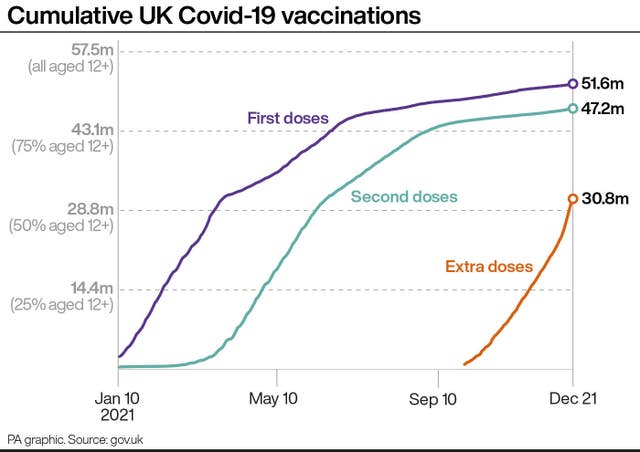
In Wales, new measures were unveiled at a press conference from First Minister Mark Drakeford.
These include: two-metre social distancing in all premises open to the public and workplaces, where reasonable; the rule of six applying to gatherings in regulated premises, such as hospitality, cinemas and theatres; table service in licensed premises; face coverings in hospitality settings at all times apart from when seated; and a maximum number of 30 people at an indoor event and 50 outdoors.
There will be an exception for team sports, where up to 50 spectators will be able to gather in addition to those taking part.
England is now left as an outlier when it comes to post-Christmas restrictions, as in Scotland, First Minister Nicola Sturgeon has already introduced new curbs on hospitality while live sports will be “effectively spectator-free” for three weeks from Boxing Day.
When asked by the PA News Agency if any change in position was likely, Downing Street referred to the Prime Minister’s commitment to no further restrictions ahead of Christmas.
Ministers have stressed the Government is constantly considering new Covid data, with health minister Gillian Keegan saying on Wednesday: “There is uncertainty. We can’t predict what the data is going to tell us before we’ve got the data.”
Labour has meanwhile called for clarity, with shadow work and pensions secretary Jonathan Ashworth suggesting “a road map” of what restrictions businesses may face ahead of New Year’s Eve should be produced, “so people know where we stand”.

